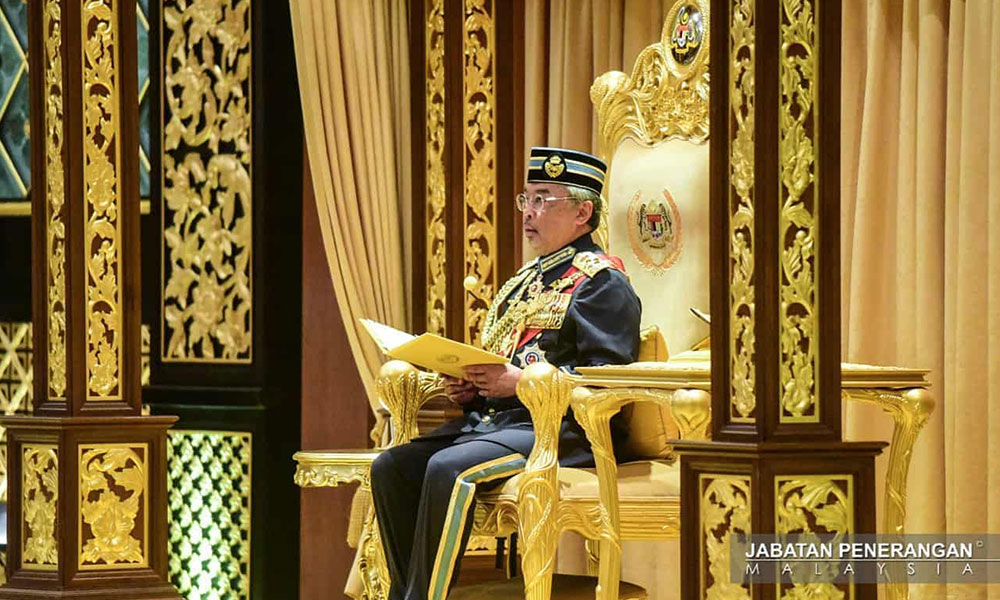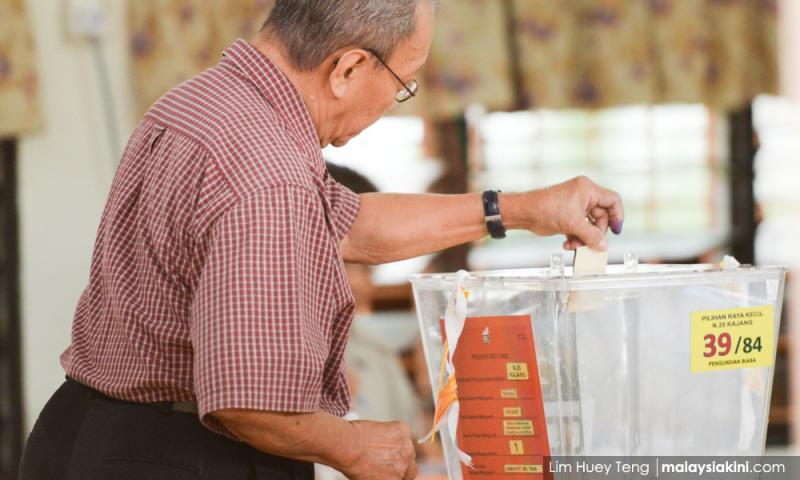The difference between democracy as a system and democracy as a principle
LETTER | Following the announcement of the appointment of our eighth prime minister on Saturday evening, #DaulatTuanku and #NotMyPM started to trend on social media.
As the political battle waged on among supporters of both sides, there are those who accused some Malaysians to be disrespectful of the Yang di-Pertuan Agong's decision. They say that it is due to the Agong’s wisdom that we were able to move past the impasse and thus proves the resilience of Malaysia’s democracy.
No learned person would dare question the legitimacy and the constitutionality of the Agong’s decision. To further show his commitment to due process, the Agong actually took two days out of his schedule to conduct interviews with MPs. As a result, the subsequent appointment on Muhyiddin Yassin as prime minister of a new government is nothing but legitimate. So, the argument goes, Malaysia’s democracy is much intact.
However, there appears to be a failure to recognise the difference between democracy as a system and democracy as a principle. It is true that the democratic system in Malaysia under the constitutional monarch has the capacity to overcome a political crisis. The survival of a democratic system, however, is not the same as saying democracy as a principle was fully respected.
Let’s take the US as an example. No one dares say America is not a democratic country with a fully functioning democracy. The president was elected in 2016 through a democratic electoral process. That process under the electoral college system, however, puts into place a president that did not receive the majority of the popular vote. Is America still democratic? Of course.
Two years into the current president’s tenure, we were shocked by the Cambridge Analytica scandal whereby Facebook users’ data was manipulated for the political gain of certain politicians. Does the purposeful use of data to sway voters bring into question the democratic system in America? Perhaps, but no one would call America anything less than a flawed democracy.
Finally, when it was revealed that the US president asked for favour from his Ukrainian counterpart in order to undermine his political rival, no one truly doubts the workability of America's democratic system. After going through all legal and constitutional means of impeaching the president, Donald Trump was acquitted and is currently preparing for his second bid for office. It appears the democratic system is currently fully functioning in America.
What does America have to do with Malaysia’s current political climate?
Similar to America, Malaysia’s democracy has survived an attempt at a soft coup by former members of the Pakatan Harapan government. However, we still need to question the commitment and dedication towards democracy by our elected leaders. In other words, was democracy, defined as the people’s power, fully respected by our politicians? I believe a cursory look at media headings from outside the country could give us the answer.

Of course, the Yang di-Pertuan Agong has the right to appoint whomever he believes to command the majority support in Parliament as prime minister. Of course, technically, the electorate voted for individual MPs, and without an anti-hopping law, what Bersatu did together with former PKR member Azmin Ali’s group of loyalists was not illegal.
Nevertheless, without any stretch of the imagination, we can make the argument that when Malaysians voted, they voted for the party or coalition. Most Malaysians cannot even tell who their MP is. But they sure can tell whether they crossed for a scale, a bruised eye, or a full moon.
Therefore, it is not incorrect to say that the people made it loud and clear that they were voting for change in the last general election. Given that we practice the Westminster parliamentary system, there is an expectation of party loyalty by MPs. For the result to be upended in less than two years is a tragedy.
At the end of the day, laws and morality are two very distinct concepts. An action can be legal yet immoral. Let’s use the American example again to bring this discussion full circle. During Trump’s impeachment trial, Alaska Senator Lisa Murkowski admitted that the president’s action was shameful and wrong, but it was not enough for him to be convicted of a crime. Here we can see the best example of how something can be deemed immoral but still very much legal.
It is true that Malaysia’s democratic system survived through the wisdom of the Yang di-Pertuan Agong. The question is whether the democratic principle was respected by those in power throughout the debacle. I believe that when Malaysians lamented the “death” of democracy in the country, they meant to say democracy as a principle, not the system.
The views expressed here are those of the author/contributor and do not necessarily represent the views of Malaysiakini.
RM12.50 / month
- Unlimited access to award-winning journalism
- Comment and share your opinions on all our articles
- Gift interesting stories to your friends
- Tax deductable
